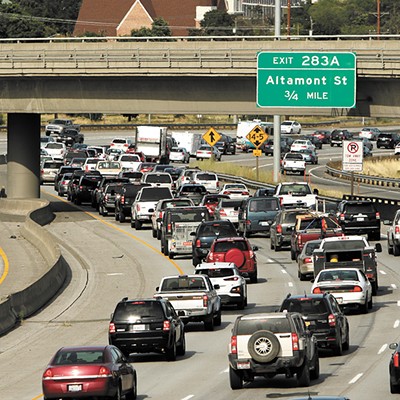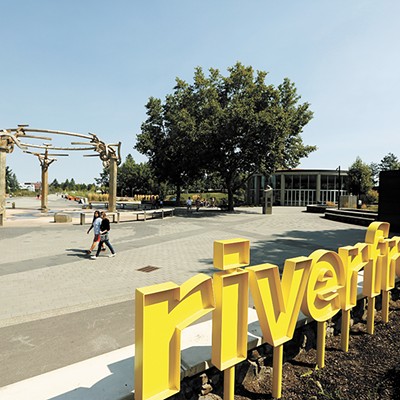5 things to know about the Spokane Transit Authority
The Spokane Transit Authority's 10-year Moving Forward plan contains two dozen individual projects, too many to mention here. We'll break down the five most important things you need to know:
1 Beginning in 2019, Spokane will construct a Central City Line to bus large volumes of people through the downtown core. The route stretches from the historic Browne's Addition neighborhood on the west side of town, through downtown and into the University District, ending at Spokane Community College to the east. The buses will be electric-powered and emit zero emissions, according to STA's website.
2 Increased rides including service later into the evening on Saturdays, more weekend trips to Airway Heights and a new route to the Spokane Valley on nights and weekends.
3 Adult fares increase from $1.50 to $1.75 in July 2017, and will jump to $2 in July 2018.
4 A sleek new command center allows transportation directors to be "proactive" rather than "reactive" when transit issues pop up, says Fred Nelson, a transportation director. When buses begin running behind schedule, for example, Nelson and his team of directors can coordinate other buses, plugging the gaps seamlessly. Directors can also build detours ahead of major public events such as Hoopfest and to avoid traffic congestion.
5 In 2016, STA transported more than 10 million passengers (down slightly from 2015), used nearly 1.4 million gallons of diesel fuel and reported six collisions (with no fatalities).
CRACKDOWN ON DRUNK DRIVING
Since at least 2012, the number of DUI charges filed in Spokane County have been slowly increasing. Notably, that increase could be attributed to the fact that the Spokane Police Department now calls the Washington State Patrol to handle DUI arrests, which are filed in the county's system, rather than the city's.
Regardless, the increase prompted Spokane County Prosecutor Larry Haskell to implement a policy that cracks down on DUI offenders, even for their first offense. For repeat offenders, the policy comes down even harder.
"A DUI is an unguided missile that is one interchange away from a direct hit," Haskell said when announcing his new policy.
Deputy Prosecutor Rachel Sterett, who supervises DUI cases, says the new policy brings Spokane more in line with standards in some other counties throughout the state.
THE STREETS ARE WATCHING
The streets are watching
Run a red light or speed through a school zone in Spokane, and there's a good chance the cameras will catch you. In an effort to improve traffic safety at certain intersections and near schools, the city of Spokane has installed cameras at 10 stoplights and in two school zones. Drivers within eyeshot can be ticketed for violating traffic laws, including running a red light, failing to stop completely at a flashing red signal or speeding.
The tickets are issued to the vehicle's registered owner as an infraction, and "insurance rates and driver's license[s] will not be affected," the city's website says. Vehicle owners can either pay the fine, ask for a hearing and reduced fine, or argue that you weren't the driver. (More info: my.spokanecity.org/police/prevention/photo-red).
The intersections where cameras have been installed are marked by "thick painted white stop lines prior to marked crosswalks," according to the city's website.
Revenue in 2016 totaling $2.8 million from the two types of cameras is funding traffic construction projects.
















